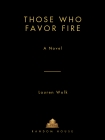Those Who Favor Fire by Lauren Wolk (no david read aloud TXT) 📗

- Author: Lauren Wolk
Book online «Those Who Favor Fire by Lauren Wolk (no david read aloud TXT) 📗». Author Lauren Wolk
Ed stared.
“I told you way back in September that this day would come, Ed. But don’t worry.” Mendelson slid his arm around Ed’s shoulders. “You won’t be the only one.”
Indeed, before the week was out, six other houses on Ed’s block wore red crosses on their front doors, as if they might be harboring medics or a renegade religious sect. Signs were posted in their yards warning people to keep out. An army of movers came and emptied out the houses in record time, carted everything off and into storage. The government put Ed and the others up at the Randall Motor Inn while they decided what to do next, and everyone in Belle Haven talked about them in whispers, as if they had died.
But neither Ed’s house nor any of the other six was the next of Belle Haven’s homes to sink, as Ross’s had, through the earth’s hot skin. That day was coming, though no one believed it yet. They knew the fire had arrived. And many of them prepared to leave before their own houses were condemned. But the exodus, when it began, was a slow and measured procession that stretched through the summer without mishap.
The government had purchased fifty of Belle Haven’s houses by the end of August but had not kept them. Soon after each family left, a red cross was sprayed on the front door of the vacant house and a weary bulldozer smacked the house down to nothing, leaving an open cellar full of debris. Frank had long since emptied out the big tanks at the Gas ’n’ Go—he’d had no choice—so the vans and the bulldozers and every other piece of machinery in Belle Haven had to drive over to Randall for gas. In the tiny clinic right in town, there were more and more cases of nausea and dizziness, bronchitis, allergy. People who had never lived through a war began to speak as if they were now part of one. But as the number of those still in Belle Haven dwindled, their dander rose. “We’ll leave when we’re good and ready,” some said, narrow-eyed and nervous. “We’re going to stay right here,” said others, “and we’ll be here long, long after everyone’s done selling out. And we’ll be the tightest, best little community you could ever want to see.”
“You study your geography,” said Archibald Kreider, who had been a miner for most of his life and told anyone who would listen that it would take more than a mine fire to chase him off his land. “All the best places on earth are a bit ticklish. People live on river-banks. They get floods. People live on beaches. They get hurricanes. People live on volcanoes. They get … eruptions.” It was hard to tell if Archie was laughing or coughing. “Some things are worth the risk,” he said, loading his jowl with tobacco.
He watched as his neighbors stripped their houses down to skeletons, hauling away lengths of hand-carved molding and mantelpieces torn carefully from the walls. No one wanted to leave anything precious to the bulldozers. They took stained-glass windows, thresholds, kitchen cupboards, weathervanes, even floorboards sometimes: whatever would remind them of the place where they had once lived.
And along with these forlorn treasures, each family leaving town took a tiny garden grown in Belle Haven soil and cradled in Rachel’s unlikely pots. They took young huckleberry plants and tea roses, Johnny-jump-ups and hollyhocks, pincushion flowers and dragon’s head, and herbs like coriander and mint.
Rachel left her hill less and less often as Belle Haven fell to pieces. She could not bear the sound of the bulldozers or the sight of moving vans. When she went to see Joe or Angela, she raced down the street and no longer stopped to listen to the water flowing under the bridge.
Every day she woke with the thought of calling Mr. Murdock, telling him to buy something, anything at all, to slow this outrageous destruction of her town. But then she would recall his prediction and reluctantly admit that to see Belle Haven’s houses being leveled was bad enough, but to make them her own and then watch them fall would be even worse. No one would be coming back to reclaim these ruined plots of ground. She knew this now. But even as she slowly, bit by bit, gave up the notion of keeping her town together, she grew more and more determined. She would salvage what she could.
Since their reconciliation, Joe had not spoken to Rachel about leaving. He had become a quiet man now that the fire had arrived, choosing his words carefully and listening with great intensity. He hated the bulldozers—heartless as big, hard, yellow hyenas—and the sound of nails torn shrieking from old wood. So, on many days that summer, Joe climbed Rachel’s hill and walked farther, past her house, into the woods, to the tree house he had built for Rusty.
He had rarely visited the tree house since the day he’d given it to Rusty many months before. When he returned to it after this long absence, hauling Pal up under one arm, he found its shelves stocked with canned goods—beans and corn, stews and chowders, soups with noodles shaped like little sharks. He found a stack of musty blankets. A tin of kerosene and an old railway lantern. Several boxes of candles and a supply of wooden kitchen matches. Three gallons of water in plastic jugs. A bar of soap and a small towel. Hung on a peg in the corner, a set of foul-weather gear.
Joe looked everything over. He did not know what





Comments (0)